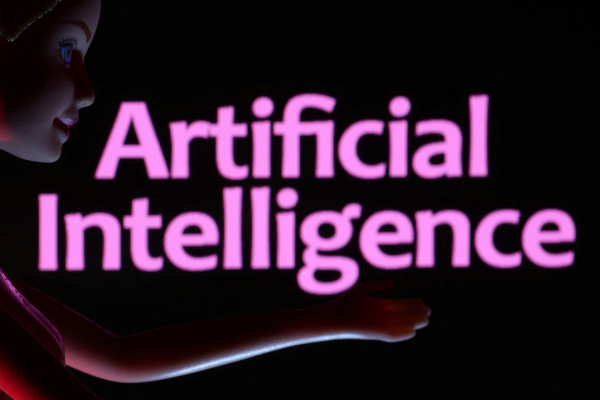Reshaping business with AI and the metaverse

Author and entrepreneur Nina Schick discusses the future of AI, its ethical challenges, and how businesses can adapt to this rapidly evolving landscape
The metaverse and immersive technologies are expected to reshape the digital landscape. How do you foresee these innovations influencing the future of business, and what role will AI play in driving this transformation?
Nina: I think the metaverse is a concept of where the internet may go and how digital experiences might be perceived in the future, making them far more immersive. However, the really interesting thing with artificial intelligence is that AI is the actual vehicle that will allow us to build these kinds of immersive digital experiences or environments that are known as the metaverse.
So, while the metaverse is still an untested concept about where the internet may go, what is definitely true right now is that AI is going to be the vehicle that will build the content that will go into this kind of immersive experience.
Generative AI is rapidly advancing and being integrated into various industries. How do you anticipate its impact on the global economy and the way businesses operate in the coming years?
Nina: I think generative AI is absolutely going to transform the economy. This is a moment similar to perhaps 1993 when we were being told to prepare for the internet, and 30 years ago we perhaps didn’t understand, in our naivety, how the internet would change business forever.
Now, generative AI is like that, but an even bigger deal, because you can understand generative AI as almost a combustion engine for all human creative and intelligent activity. So, every industry, every bit of productivity, will be transformed by generative AI, and those use cases are emerging now.
With AI and big data becoming more deeply embedded in society, what do you see as the most pressing ethical concerns surrounding these technologies, and how should they be addressed to ensure responsible development?
Nina: The question of ethics, AI, and big data is one that is going to become intensely political and will be a predominant issue for a long time to come. You have this utterly transformative technology that I think will change the economy, the labour market, and actually the framework of society.
So, the question about how to apply this technology in a fair, safe, and ethical way will be a dominant political issue.
The influence of data and AI is increasingly shaping global politics. In what ways do you believe artificial intelligence will redefine political structures and decision-making in the years to come?
Nina: Again, when you think about how profound AI is in its ability to impact and change the framework of society, this AI revolution will become one of the most important political questions of our generation.
We’ve already seen how the information revolution of the past 30 years—the internet, smartphones, and cloud computing—has become a major geopolitical force shaping our world. Now, you add the AI revolution on top of that and the data powering it, and again, you have a seismic political issue that will be one of the most important things societies need to deal with in the next generation.
So, when you ask about how it will impact politics, it will become politics.
As businesses strive for digital transformation, what key considerations should leaders consider to successfully integrate AI into their long-term strategy while maintaining competitiveness?
Nina: For businesses looking to digitally transform their mindset, you have to understand the conceptual paradigm change that is happening now with artificial intelligence. And once you have the conceptual framework in place, you can start to delve deep quickly.
If you want to be competitive and have an advantage, this is the time to start looking at how generative AI can be applied in your business. So, there are many considerations you need to take into account regarding your priority areas, long-term gains—not just short-term gains—and your long-term AI strategy.
If you put together a generative AI working group to look into this, your business will be transformed and able to compete with other businesses that are using AI to transform their processes.
You were the first author to write a book on generative AI. What inspired you to explore this topic, and how did you develop the foresight to address it before it became mainstream?
Nina: The reason I was interested in AI is not because I’m a techie; I don’t have a technical background. My background has always been in macro trends that are shaping society, geopolitics, and the world. This is why I started to research and write about AI.
Ultimately, this isn’t a story about technology. This is a story about humanity. The way that this exponential technology, which is built, amplified, and controlled by humans, is going to transform not only the way we work but the way we live. It will even change our perception of what it means to be human.
Nina Schick is a consultant and leading expert in generative AI, advising global leaders on its transformative impact. She is the author of Deepfakes: The Coming Infocalypse. This interview with Nina Schick was conducted by Mark Matthews.
Main image courtesy of iStockPhoto.com and greenbutterfly

Business Reporter Team
You may also like
Most Viewed
Winston House, 3rd Floor, Units 306-309, 2-4 Dollis Park, London, N3 1HF
23-29 Hendon Lane, London, N3 1RT
020 8349 4363
© 2025, Lyonsdown Limited. Business Reporter® is a registered trademark of Lyonsdown Ltd. VAT registration number: 830519543





